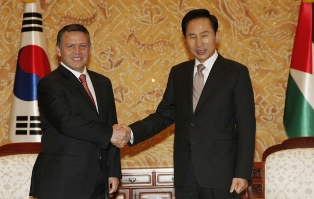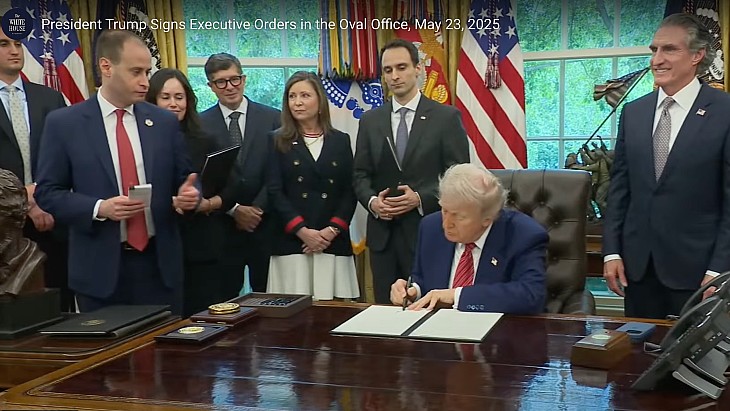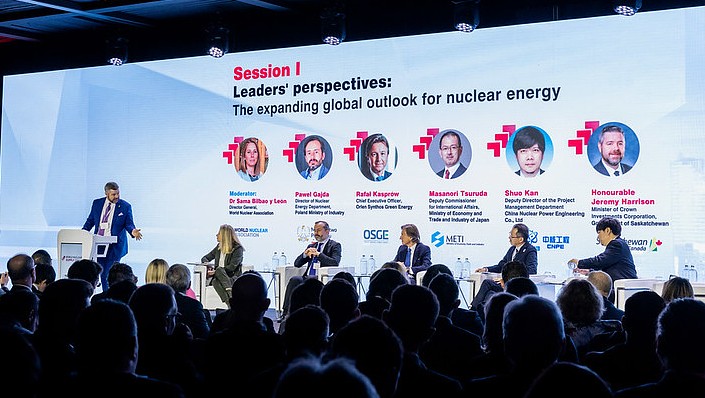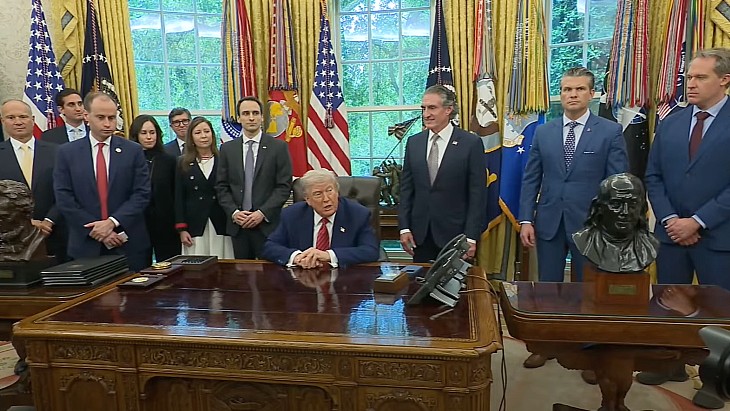South Korea offers help to Jordan, Philippines
![]() South Korea has signed a nuclear energy cooperation agreement with Jordan and is expected to agree to conduct a feasibility study into reviving the Bataan nuclear power plant project in the Philippines.
South Korea has signed a nuclear energy cooperation agreement with Jordan and is expected to agree to conduct a feasibility study into reviving the Bataan nuclear power plant project in the Philippines.
South Korea has signed a nuclear energy cooperation agreement with Jordan and is expected to agree to conduct a feasibility study into reviving the Bataan nuclear power plant project in the Philippines.
 |
| King Abdullah II with President Lee (Image: Office of the South Korean President) |
An agreement on cooperation in the field of the peaceful use of nuclear energy was signed between the two countries. In addition, a memorandum of understanding was signed on cooperation between Korea Electric Power Co (Kepco) and the Jordan Atomic Energy Commission (JAEC).
A statement from the Korean presidential office said, "King Abdullah II explained in detail Jordan's major infrastructure projects aimed at economic and regional development. The projects include construction of nuclear power plants, the grand waterway between the Red Sea and the Dead Sea, and desalination facilities. The King hoped that cooperation with Korea would be expanded in these areas. He also made a request that Korean companies, recognised around the world for their expertise and equipped with top-notch technology and experience, actively participate in the projects."
Jordan, an energy resource-poor country that currently imports about 95% of its needs, is working towards introducing nuclear power for both energy and water desalination with plans for its first nuclear plant to start up in 2015. The country aims for 30% of its electricity demand to be met by nuclear power generation by 2040. Jordan recently signed a nuclear cooperation agreement with China, adding to similar agreements with the USA, France and UK.
Philippine feasibility study
Meanwhile, Kepco will reportedly sign a memorandum of understanding with the Philippines' National Power Corp (Napocor) to conduct a feasibility study into reviving the Bataan nuclear power plant project.
In response to the 1973 oil crisis, President Ferdinand Marcos ordered the construction of the two-unit Bataan Nuclear Power Plant (BNPP). Construction of Bataan-1 - a 621 MWe Westinghouse pressurized water reactor - began in 1976 and it was completed in 1984 at a cost of $460 million. However, due to financial issues and safety concerns, the plant was never loaded with fuel and operated. In April 2007, the Philippine government made the final payment for the plant.
The director of the Philippine Nuclear Research Institute (PNRI) told the PhilStar.com news service that a feasibility study to examine the rehabilitation of the project would take about 18 months to conduct.
In early 2008, an eight-strong team from the International Atomic Energy Agency (IAEA) visited the Philippines to help assess the feasibility of rehabilitating the mothballed Bataan nuclear power plant. The team advised the government that Bataan-1 could be refurbished and could economically and safely be operated for 30 years. Refurbishment is estimated to cost some $800 million. The IAEA was also to recommend a policy framework for nuclear power development in the country.











